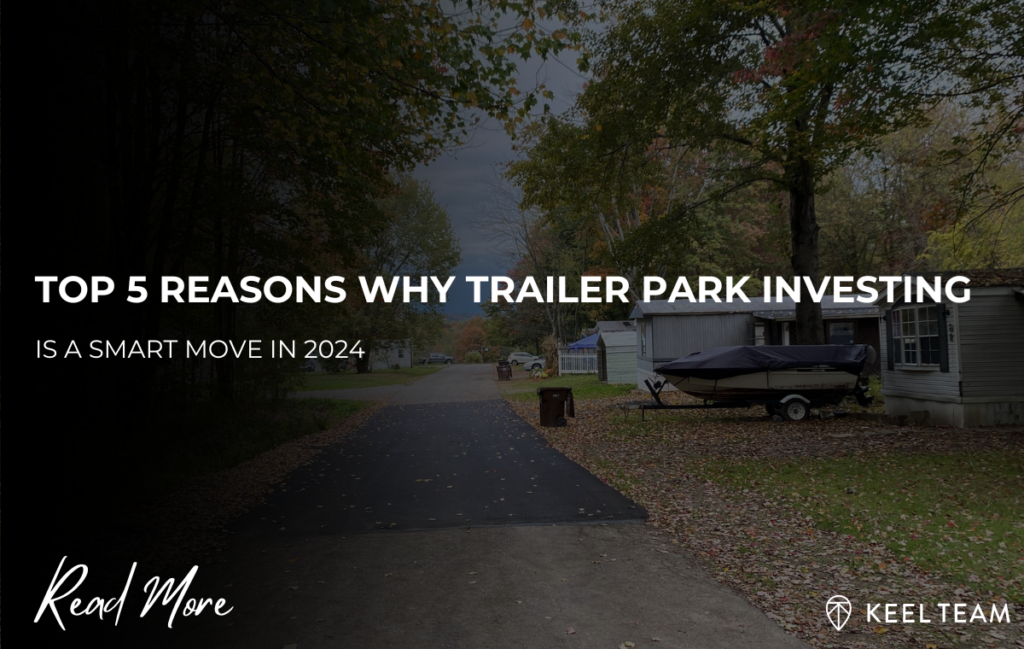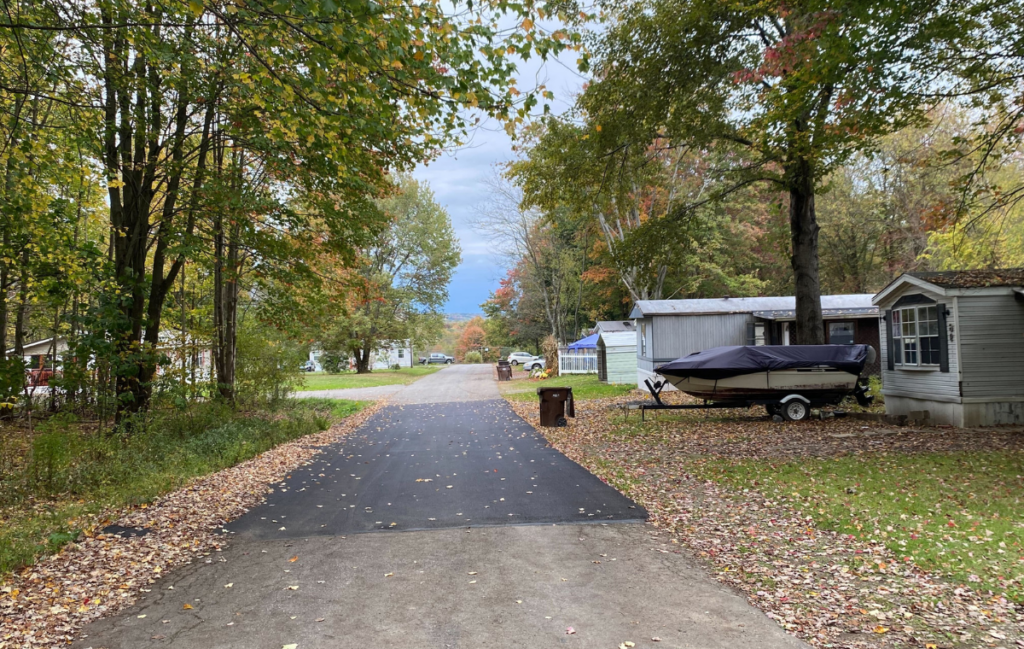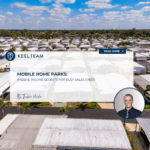Top 5 Reasons Why Trailer Park Investing Is a Smart Move in 2024

Trailer park investing has gained significant attention in recent years, especially as the demand for affordable housing continues to rise. As we are well into 2024, the trend has shown no signs of slowing down. For those considering entering the real estate market, trailer parks offer a unique opportunity that combines relatively low entry costs with potentially high returns. In this article, we’ll explore five compelling reasons why trailer park investing could be a smart move in 2024.
1. Growing Demand for Affordable Housing
The affordable housing crisis has been a topic of discussion for many years, and it remains a pressing issue across the United States. As housing costs continue to soar, more individuals and families are looking for cost-effective living solutions. Trailer parks provide an affordable alternative to traditional housing, making them increasingly popular.
Why This Matters for Investors
With the growing demand for affordable housing, trailer parks are likely to see consistent or increasing occupancy rates. High demand can translate into steady rental income, which is a key factor in any successful real estate investment. Additionally, the relatively low cost of renting or owning a mobile home compared to other housing options makes trailer parks an attractive choice for many.
Considerations
While the demand for affordable housing is high, investors should research the specific markets they are interested in. Not all areas have the same level of demand for trailer parks, so it’s important to focus on regions where the need for affordable housing is most acute. A good test ad could help gauge the demand in an area.
2. Lower Acquisition and Operating Costs
One of the most appealing aspects of trailer park investing is the lower cost of entry compared to other types of real estate investments. Purchasing a trailer park typically requires less capital than buying multi-family properties or single-family homes in desirable locations.
The Financial Advantage
Lower acquisition costs mean that investors can enter the market without needing large amounts of capital upfront. This makes trailer park investing accessible to a wider range of investors, including those who are new to real estate. Moreover, operating costs for trailer parks tend to be lower than for other types of properties. Maintenance and management are often less expensive, particularly if tenants own their mobile homes and are responsible for their upkeep.
Considerations
While the initial costs are lower, it’s important to account for ongoing expenses such as property taxes, utilities, and potential capital improvements. Additionally, investors should be prepared for the possibility of unexpected expenses, such as repairs to common areas or infrastructure.
3. Potential for High Returns
The combination of high demand and lower costs can potentially lead to attractive returns on investment. Trailer parks often have higher cap rates than other types of real estate, meaning they typically generate more income relative to their purchase price.
Why Returns Can Be High
One reason for the potential high returns is the consistent cash flow that trailer parks can possibly provide. With lower operating costs and steady rental income, investors may see a stronger return on their investment compared to other real estate ventures. Additionally, trailer parks often have room for expansion or improvement, which can further increase the value of the investment over time.
Considerations
While the potential for high returns is appealing, it’s essential to approach trailer park investing with a clear strategy. Investors should conduct thorough due diligence, including analyzing the financials, understanding local market conditions, and planning for future improvements or expansions.
Download our FREE eBook and explore the top things Andrew Keel recommends you consider when investing in mobile home parks.

4. Stable and Resilient Investment
Trailer parks have proven to be relatively stable and resilient investments, particularly during economic downturns. When the economy struggles, people tend to look for more affordable housing options, which can lead to increased demand for trailer park spaces.
The Stability Factor
During recessions or periods of economic uncertainty, many traditional real estate investments, such as luxury apartments or office spaces, can see declines in occupancy and rental income. In contrast, trailer parks often experience steady or even increased demand as people downsize or seek more affordable living arrangements. This resilience makes trailer park investing an attractive option for those looking for a more stable investment.
Considerations
While trailer parks tend to be more stable during economic downturns, they are not entirely recession-proof. Investors should still consider the broader economic environment and potential risks, such as changes in local zoning laws or shifts in the demand for affordable housing.
5. Opportunity for Value-Add Investments
Trailer parks typically offer investors the opportunity to add value through improvements and enhancements. Whether it’s upgrading infrastructure, adding amenities, or improving management practices, there are multiple ways to increase the value of a trailer park investment.
Adding Value to Your Investment
Investors who are willing to put in the time and effort can potentially increase the value of their trailer park. For example, increasing occupancy, and billing back utilities, and raising rents are a few ways to potentially add value. Additionally, adding amenities like playgrounds, community centers, or laundry facilities can make the trailer park more appealing.
Another way to add value is by improving management practices. Effective management can lead to higher occupancy rates, lower tenant turnover, and better overall financial performance. By focusing on customer service and maintaining a clean, safe environment, investors can likely enhance the reputation of their trailer park, which can ultimately lead to higher returns.
Considerations
Value-add investments can offer significant rewards, but they also come with risks. It’s important to carefully assess the costs and potential returns of any improvements before proceeding. Investors should also consider the impact of these changes on the existing tenant base and ensure that any upgrades align with the needs and preferences of the trailer park’s residents.
Conclusion
Trailer park investing in 2024 presents a compelling opportunity for real estate investors. The growing demand for affordable housing, combined with lower acquisition and operating costs, the potential for high returns, and the historical stability of trailer parks, makes this an attractive investment option. Additionally, the opportunity for value-add investments allows investors to increase the value of their properties over time.
However, as with any investment, it’s important to approach trailer park investing with careful planning and due diligence. By researching the market, understanding the financials, and developing a clear investment strategy, investors can position themselves for potential success in the trailer park asset class. While there are no guarantees, the unique advantages of trailer park investing make it a smart move for those looking to diversify their real estate portfolios in 2024.
Learn more about mobile home park investing.
Interested in learning more about mobile home park investing? Get in touch with us today to find out more.
Disclaimer:
The information provided is for informational purposes only and is not investment advice or a guarantee of any kind. We do not guarantee profitability. Make investment decisions based on your own research and consult registered financial and legal professionals. We are not registered financial or legal professionals and do not provide personalized investment recommendations.
View The Previous or Next Post
Subscribe Below 👇





